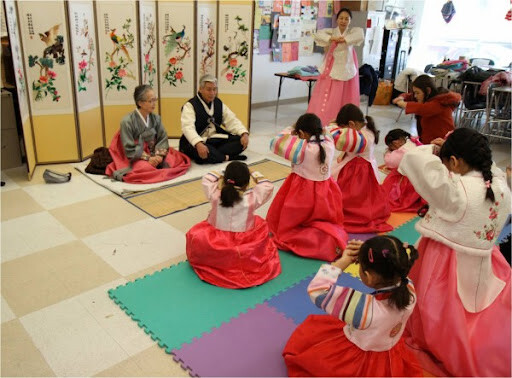
Seolnal, the Korean Lunar New Year, is one of the most important traditional holidays in Korea. It is a time for families to gather, pay respects to ancestors, and enjoy traditional customs.
Origins and Significance
Seolnal is celebrated according to the lunisolar Korean calendar, usually falling between late January and mid-February on the Gregorian calendar. The exact date varies each year. The holiday has deep roots in Korean history and tradition, and it is believed to have originated from ancient agricultural rituals celebrating the beginning of a new year and a bountiful harvest.
Customs and Traditions
Sebae: Sebae is a traditional custom where younger family members bow to their elders to show respect and receive blessings in return.
Charye: Charye is a ritual of offering food and drink to ancestors at a family altar.
Traditional Foods: Seolnal is associated with various traditional foods, including tteokguk (rice cake soup), which is considered a symbolic food for gaining a year in age.
Hanbok: People often wear hanbok, traditional Korean clothing, during Seolnal celebrations.
Games and Folk Performances: Traditional games such as yut nori (a stick game) and folk performances like lion dances are popular during Seolnal.
Visiting Relatives: Family members travel to visit their relatives and spend time together.
Seolnal in Modern Korea
While many traditional customs are still observed, Seolnal celebrations have evolved over time. With increased urbanization and globalization, some younger generations may have less exposure to traditional customs. However, there is a growing interest in preserving and revitalizing traditional Korean culture, and Seolnal remains a significant holiday for many Koreans.
Seolnal and the Concept of Shinjeong and Gujeong
For a period, Korea observed both the Lunar New Year (Seolnal) and the Solar New Year (January 1st). The Lunar New Year was often referred to as "Gujeong" (old New Year), while the Solar New Year was called "Shinjeong" (new New Year). However, in recent years, the term "Seolnal" has become more widely used to refer exclusively to the Lunar New Year, and the distinction between Shinjeong and Gujeong has faded.
Conclusion
Seolnal is a time for Koreans to connect with their roots, strengthen family bonds, and appreciate their cultural heritage. As a dynamic holiday, it continues to evolve while preserving its core traditions and values.
[Copyright (c) Global Economic Times. All Rights Reserved.]






























